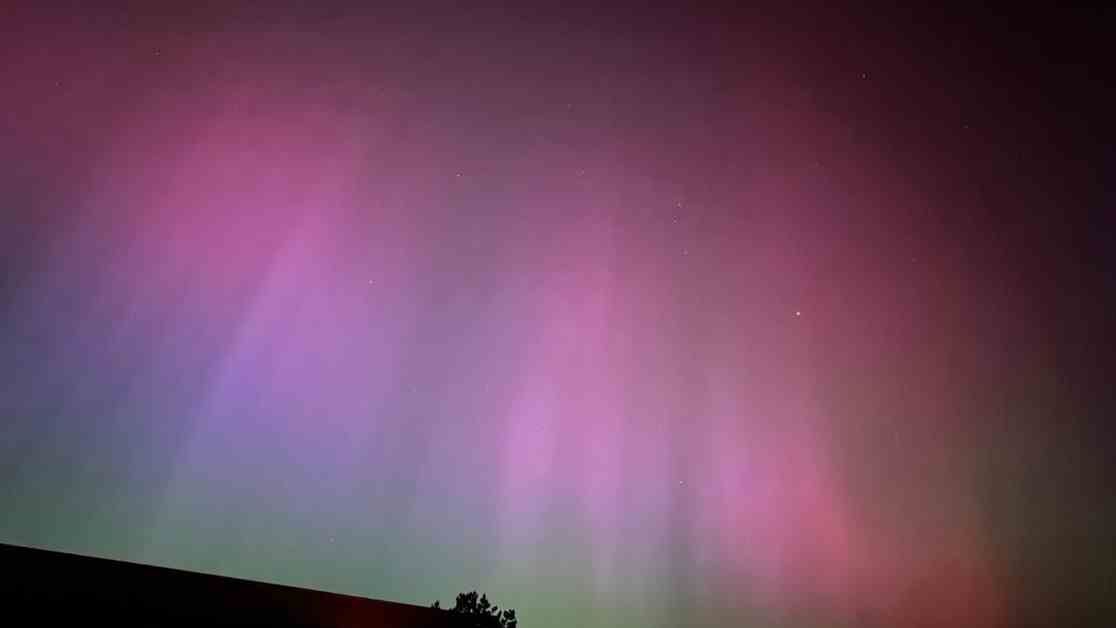New Solar Eruption Could Bring Northern Lights to France
Scientists have reported a massive solar eruption that could potentially lead to the appearance of Northern Lights in France early next week. The eruption occurred during the night of Friday to Saturday, with a significant amount of solar particles being ejected into space.
Pierre Henriquet, a certified scientific mediator in astronomy and astrophysics, explained that the active region AR3697 on the Sun produced a massive coronal mass ejection on its western side. This long-lasting solar eruption released a substantial amount of solar particles into interplanetary space.
According to experts, the solar particles could reach Earth’s environment by Monday if the Earth’s magnetic field is properly aligned. This could result in the production of beautiful Northern Lights, especially at high latitudes.
Physicist and professor Fabrizio Bucella from the University of Brussels mentioned that the coronal mass ejection is expected to reach Earth by June 10, 2024, potentially causing moderate to strong geomagnetic storms (G2 to G3 level). If the storm reaches G3 level, the Northern Lights could be visible even at lower latitudes, including in France.
In recent months, several instances of Northern Lights have been observed in France following previous solar eruptions. Solar eruptions are a result of the intense activity of our Sun, occurring in approximately an 11-year cycle. These eruptions typically originate from sunspots, cold and magnetic areas on the Sun’s surface.
These events are triggered by the buildup of magnetic energy at the solar equator, leading to the rapid ejection of particles into space at speeds ranging from 300 to 1,000 km per second, equivalent to the distance between the Sun and Earth in three days.
Typically, such solar storms first impact regions around the poles. It remains to be seen whether this significant event will produce Northern Lights at lower latitudes, potentially in France. To find out, sky watchers will need to keep an eye on the sky from Monday night to Tuesday.



